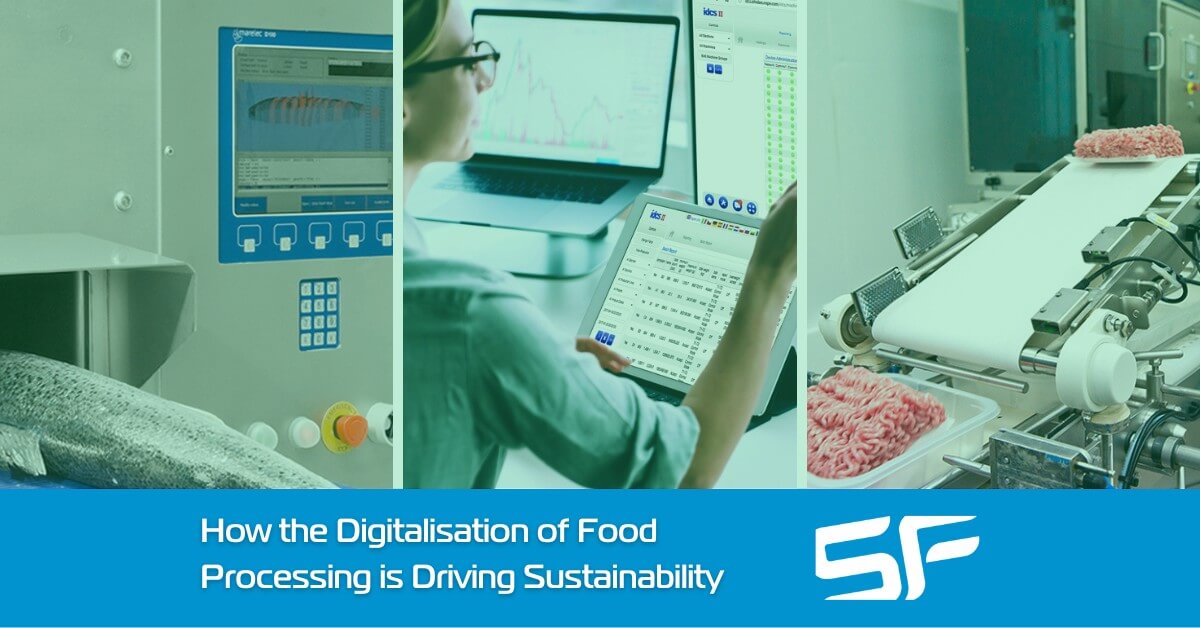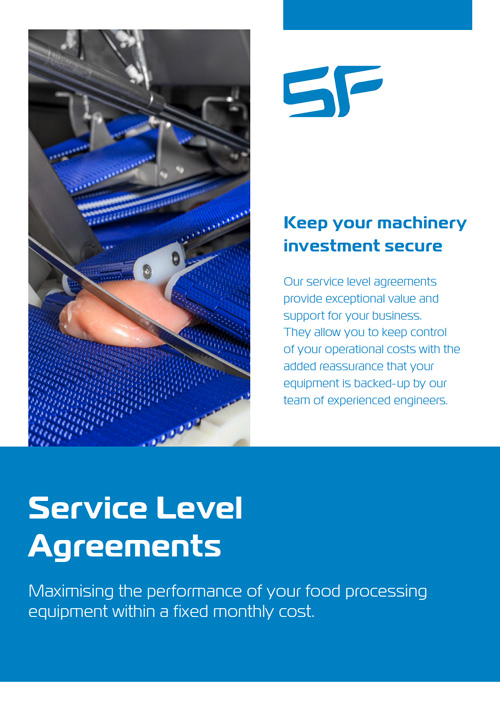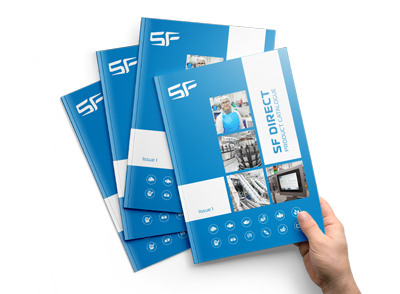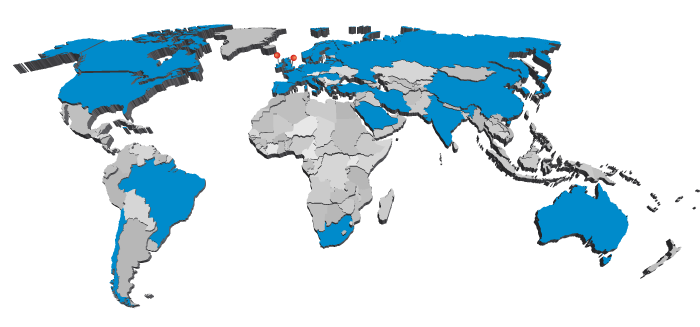How the Digitalisation of Food Processing is Driving Sustainability

Improving sustainability is a commercial imperative for food processors. Digital transformation – or digitalisation – is also a priority. Key objectives include increased process automation and making better use of data. Digitalisation initiatives can improve competitiveness, deliver efficiency savings, and enhance productivity, but they can also drive sustainability and help achieve your sustainability goals.
When it comes to sustainability, compliance considerations are, of course, important, but large customers are increasingly taking sustainability issues into consideration when entering into contracts with food processors. Consumers also have a growing interest in the sustainability of their food purchasing choices.
So, sustainability is important for regulatory and ethical reasons, but there are also commercial reasons for becoming a more sustainable business.
Modernising your production lines and introducing advanced equipment will, among other operational and financial benefits, help achieve your sustainability goals.
Environmental Sustainability
Digitalisation can help improve environmental sustainability by reducing the impact your food processing operations have on the environment. For example, advanced production line solutions and technologies can reduce waste across the entire product lifecycle, from raw materials through to used-by or best-before-expiration dates.
Increasing automation and the use of data on your food production lines will also improve traceability and enhance oversight, giving you access to information that can lead to further process and operational improvements.
Increased levels of automation and improving how you use data can also reduce consumption in your food processing operations. This especially applies to the amount of water, cleaning chemicals, and energy that your facility needs to operate safely and efficiently.
Sustainability in Food Manufacturing
Sustainability in food manufacturing isn’t just about lower carbon footprints and minimising the environmental impact of your operations. Sustainability in food manufacturing is also about:
- Improving the wellbeing of workers and providing safe work environments.
- Making a positive contribution to the communities that are close to your factories.
- Having a positive influence on the food processing industry and wider society.
- Ensuring your business is economically successful today and in the future.
Automation and digitalisation technologies can also help improve these areas of sustainability in food manufacturing.
For example, by automating processes and digitalising your food processing lines, you can improve working conditions for operators on the line. This, in turn, can improve staff retention and make it easier for your company to attract the best employees.
Another example is improving throughput and/or yield through the introduction of new technologies that automate and digitalise processes on your production line.
Digitalisation Next Steps
Every food manufacturing facility and production line is different, so your roadmap to enhanced digitalisation, increased automation, and improved sustainability will be unique to your business.
The next steps involve assessing your operations to understand not only what could be achieved through digitalisation, but what should be achieved.
The distinction between could and should is important as with the technology that exists today, the near lights-out factory is theoretically possible. It is also theoretically possible to operate a food production line entirely manually without a conveyor, PLC, or screen in sight.
The reality in the real world of food production is that your digitalisation landing zone over the next six, 12, or 24 months will be somewhere in between. It’s not about what could be done, as that scope is too broad. Instead, the focus should be on what should be done; on what makes sense for your business.
Wherever your digitalisation landing zone is, implementing automation and digitalisation solutions will drive sustainability improvements in your business.





